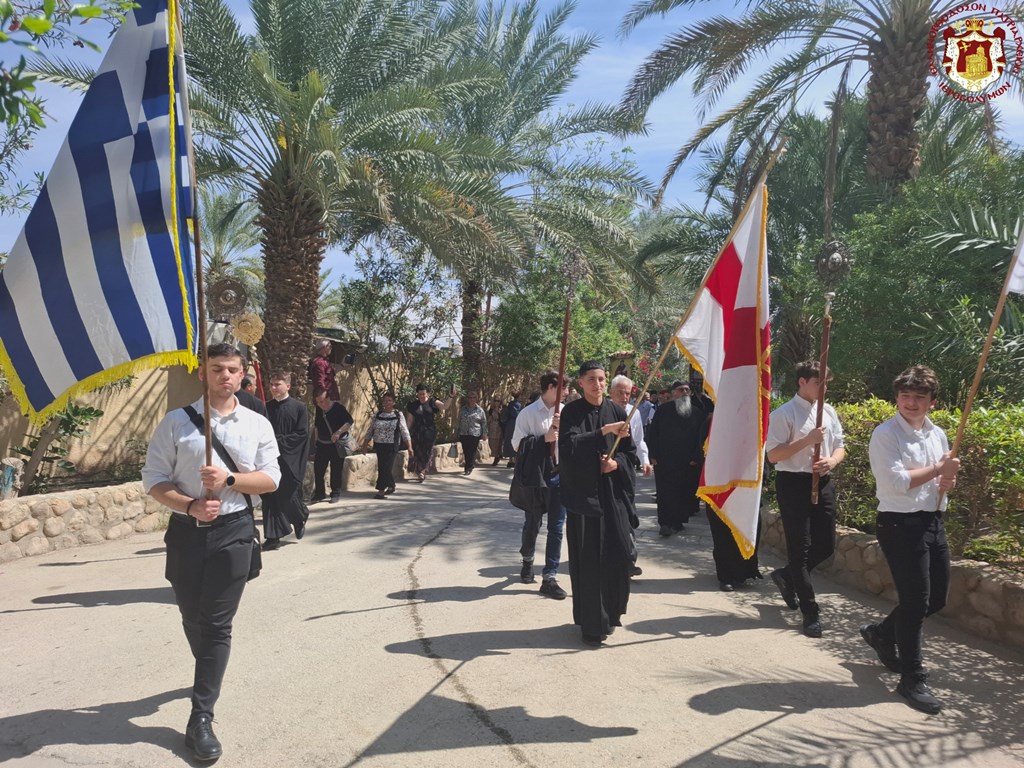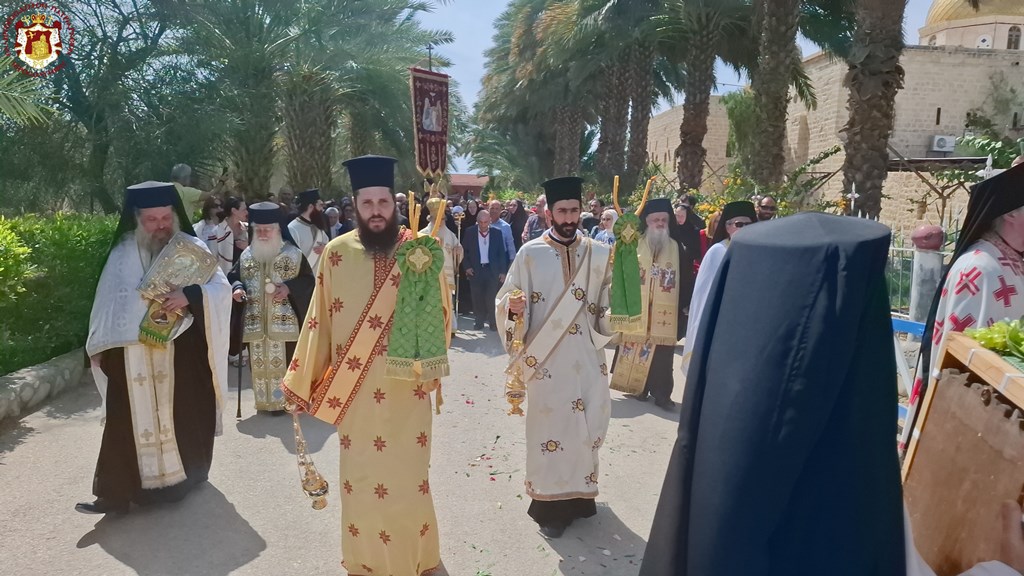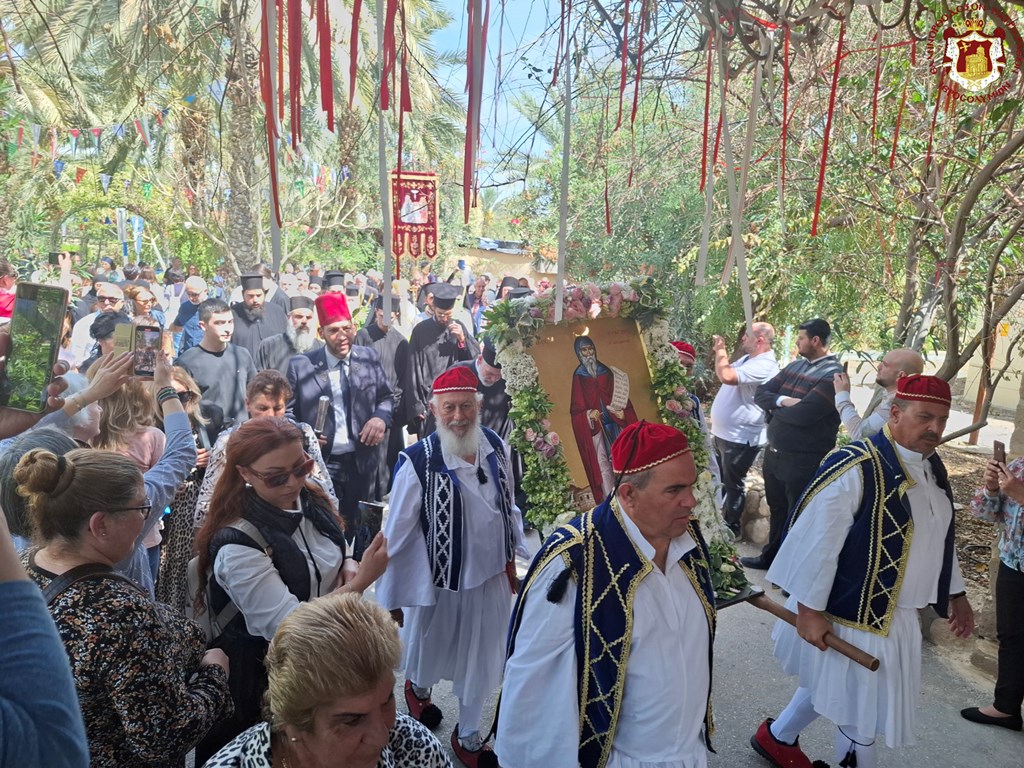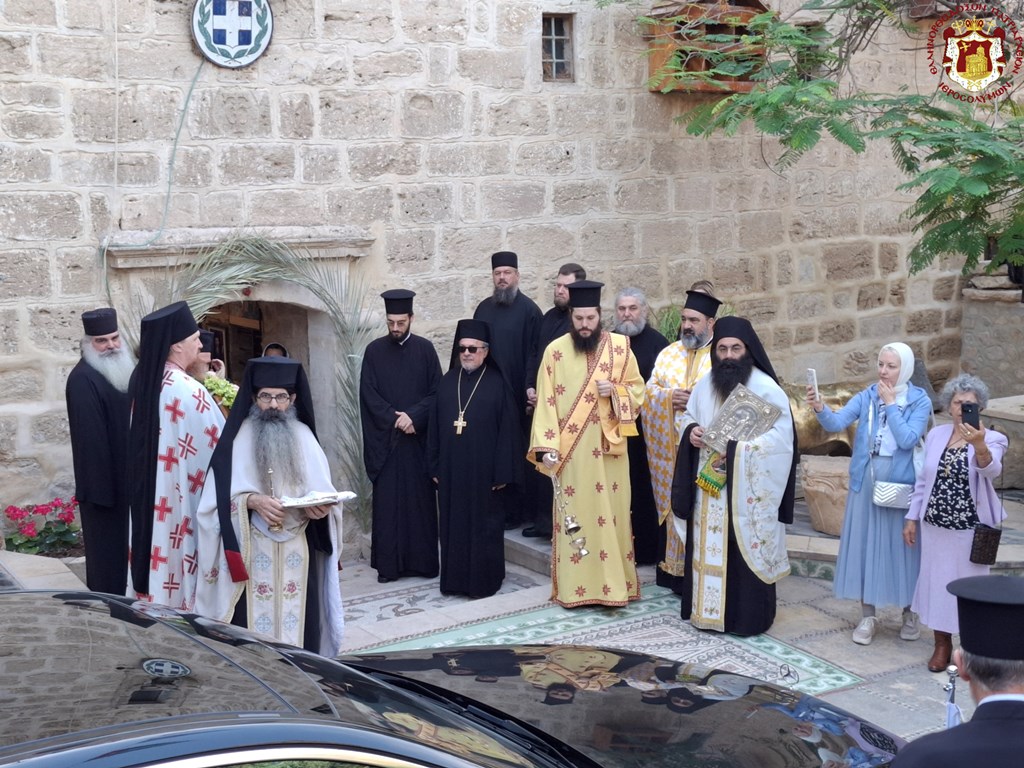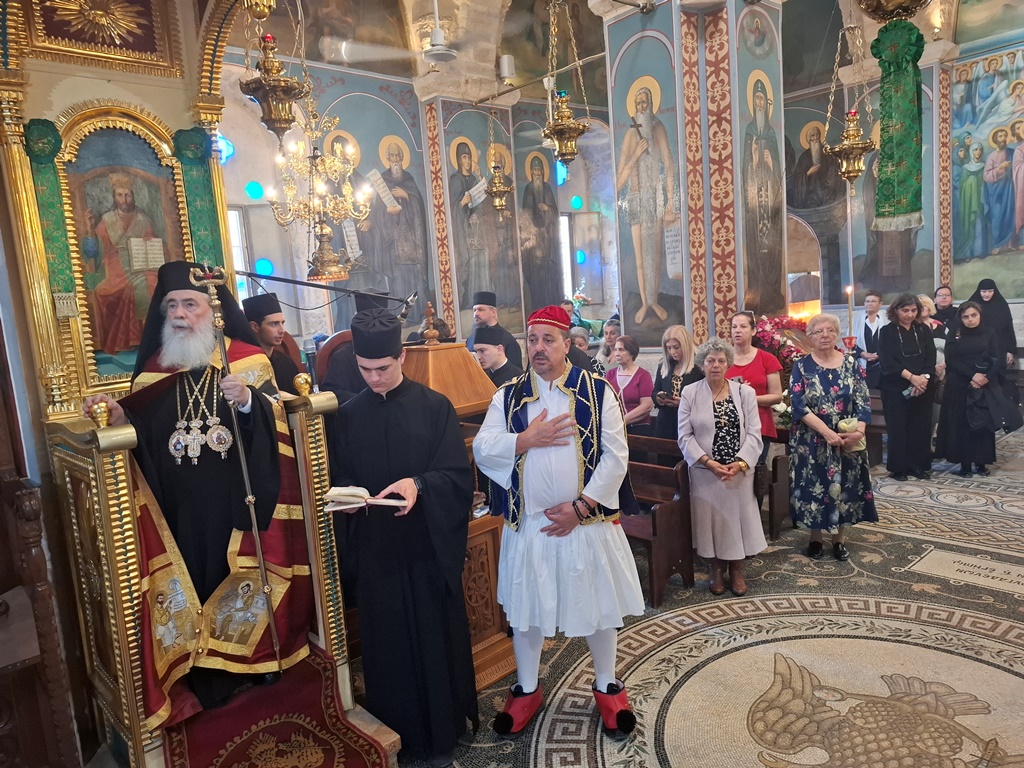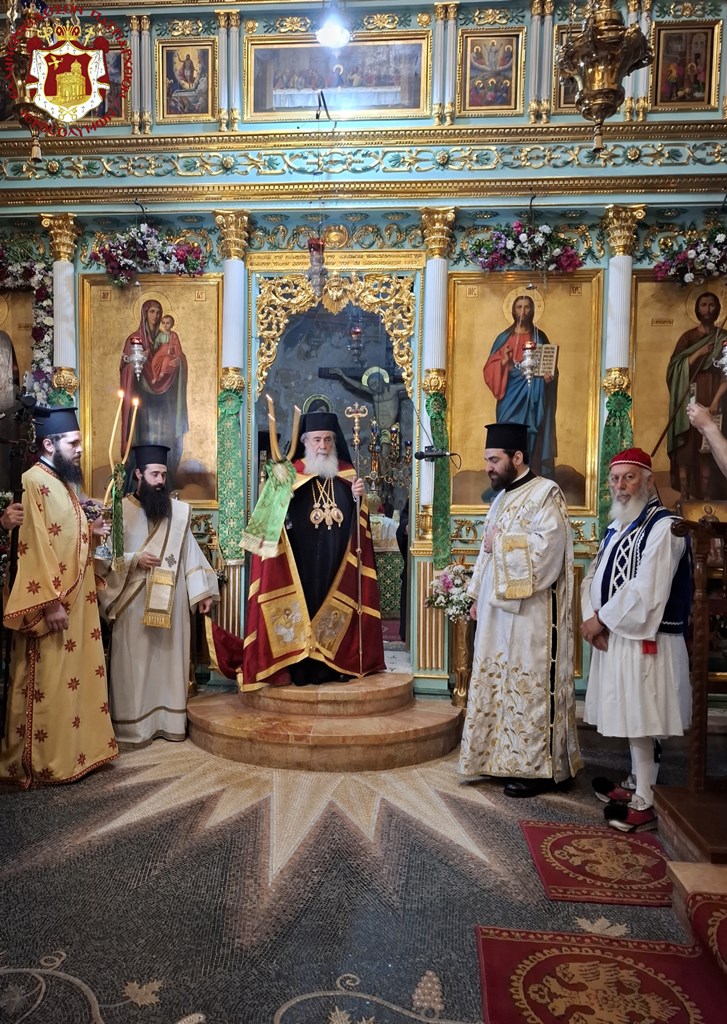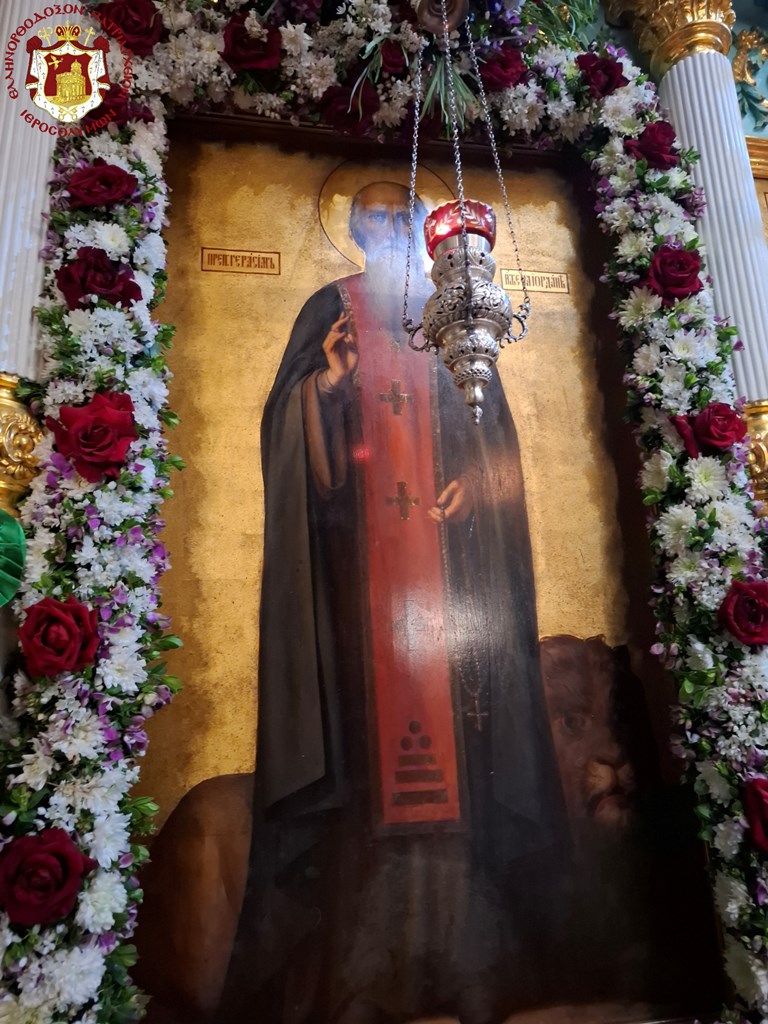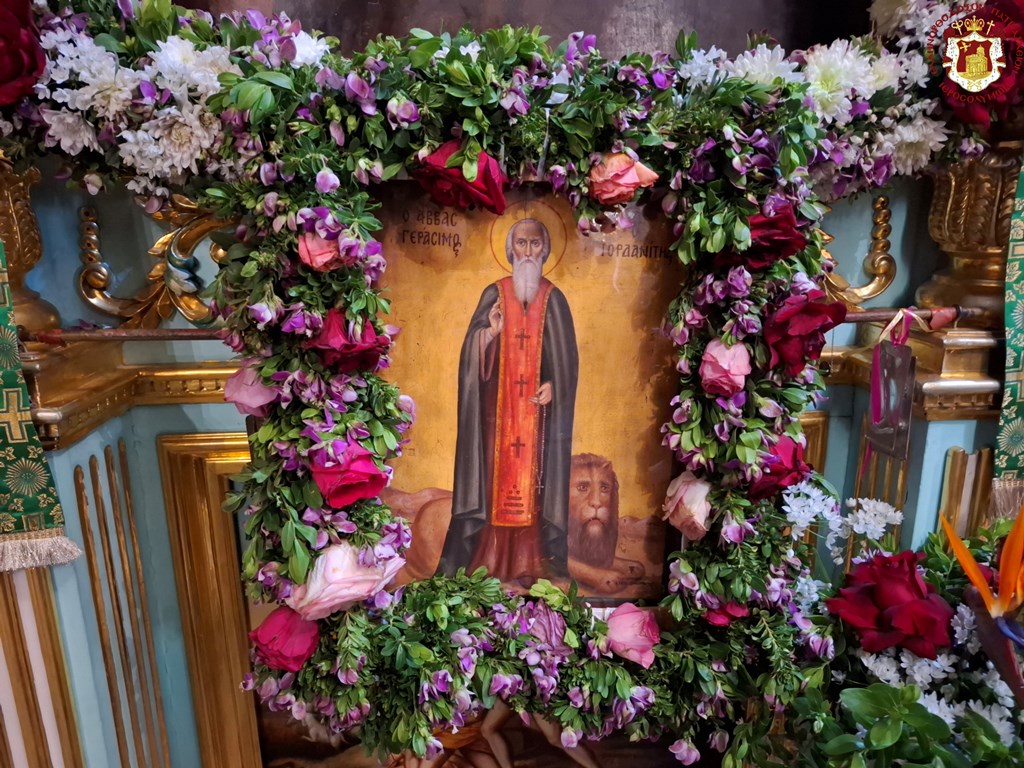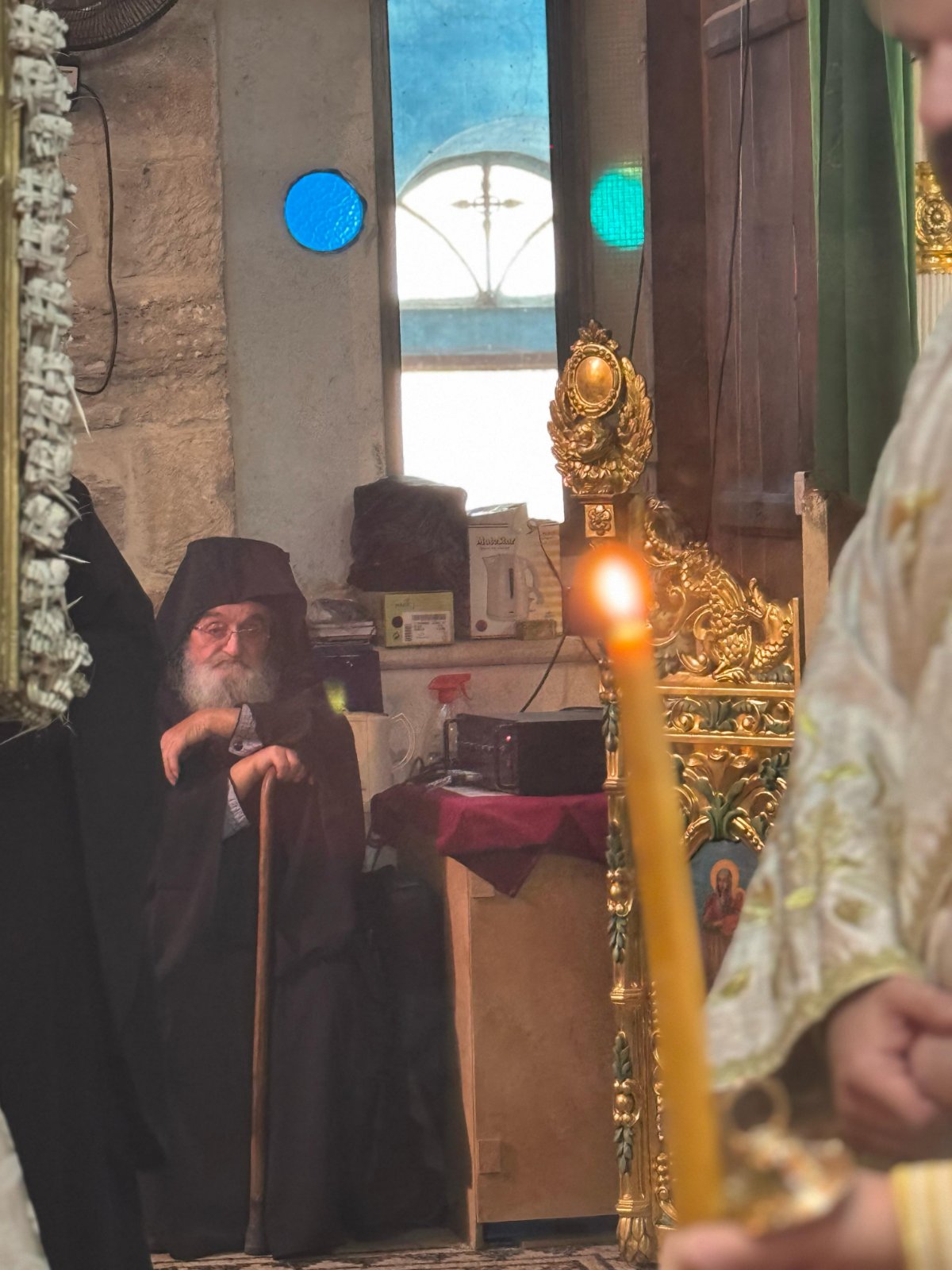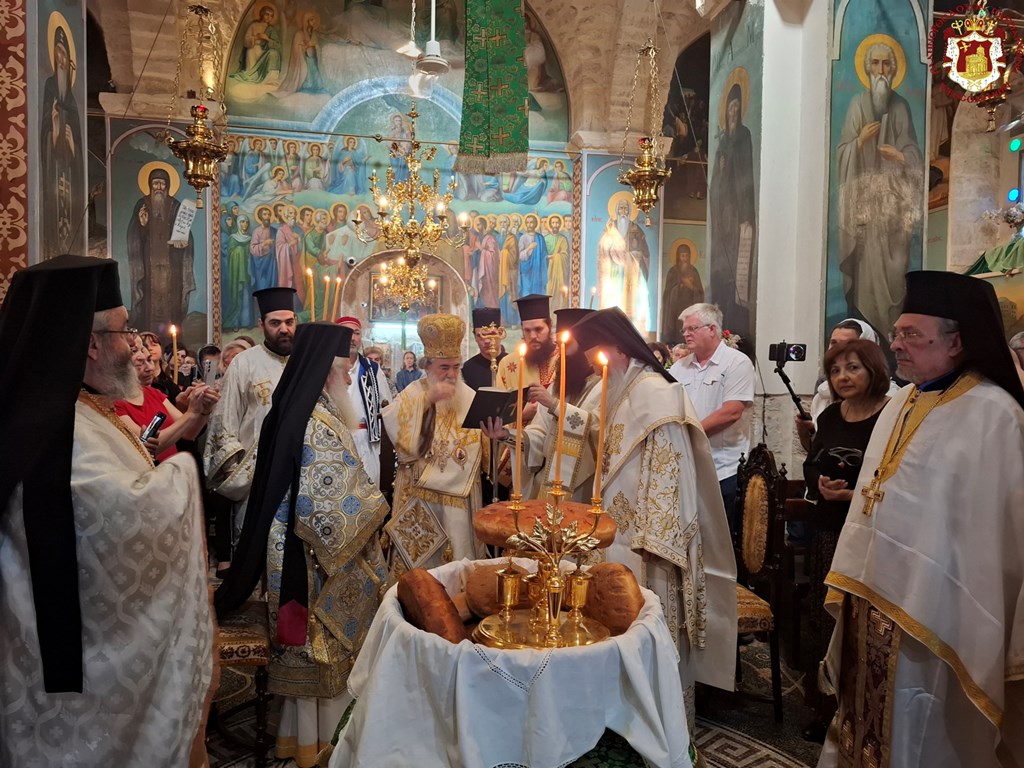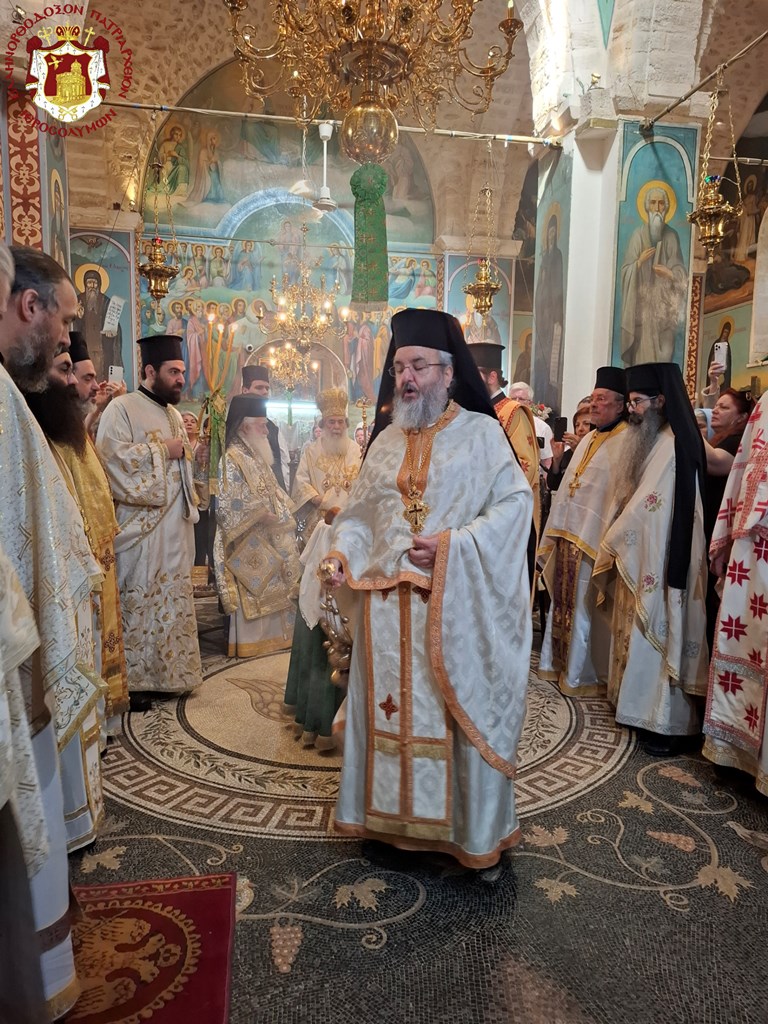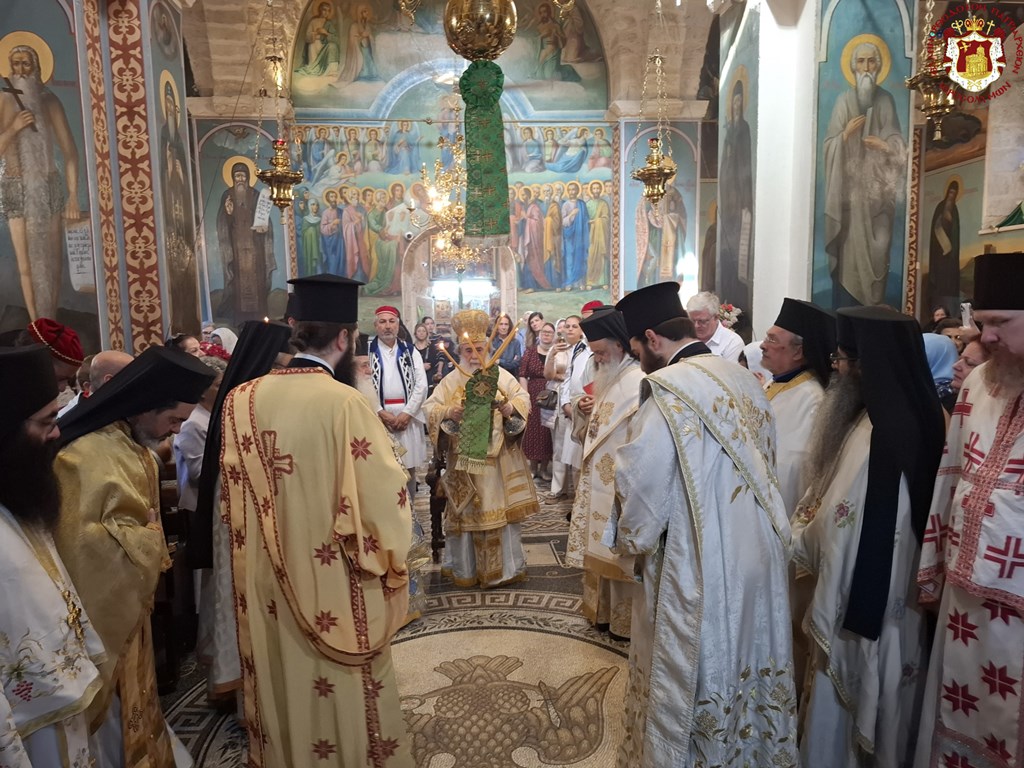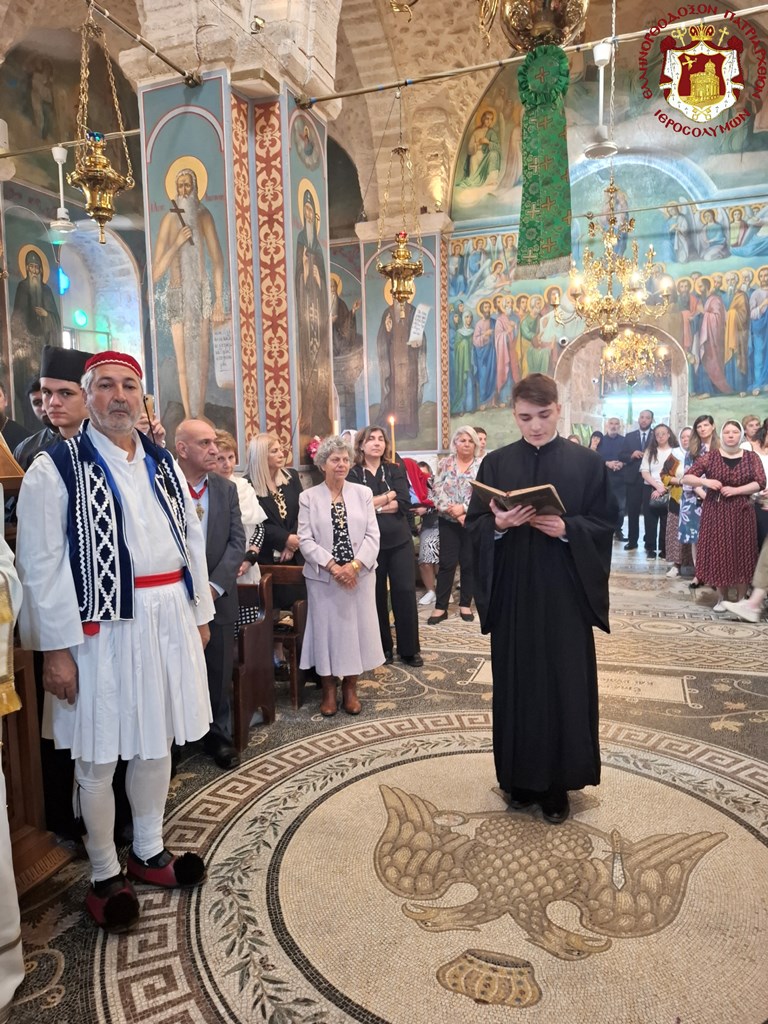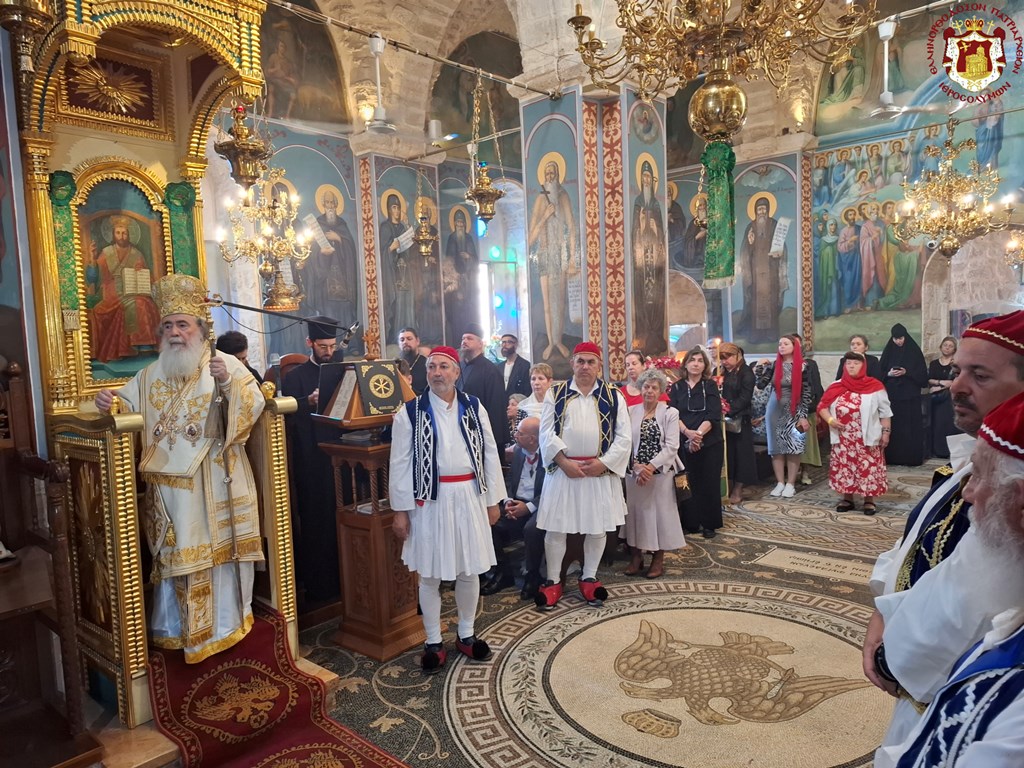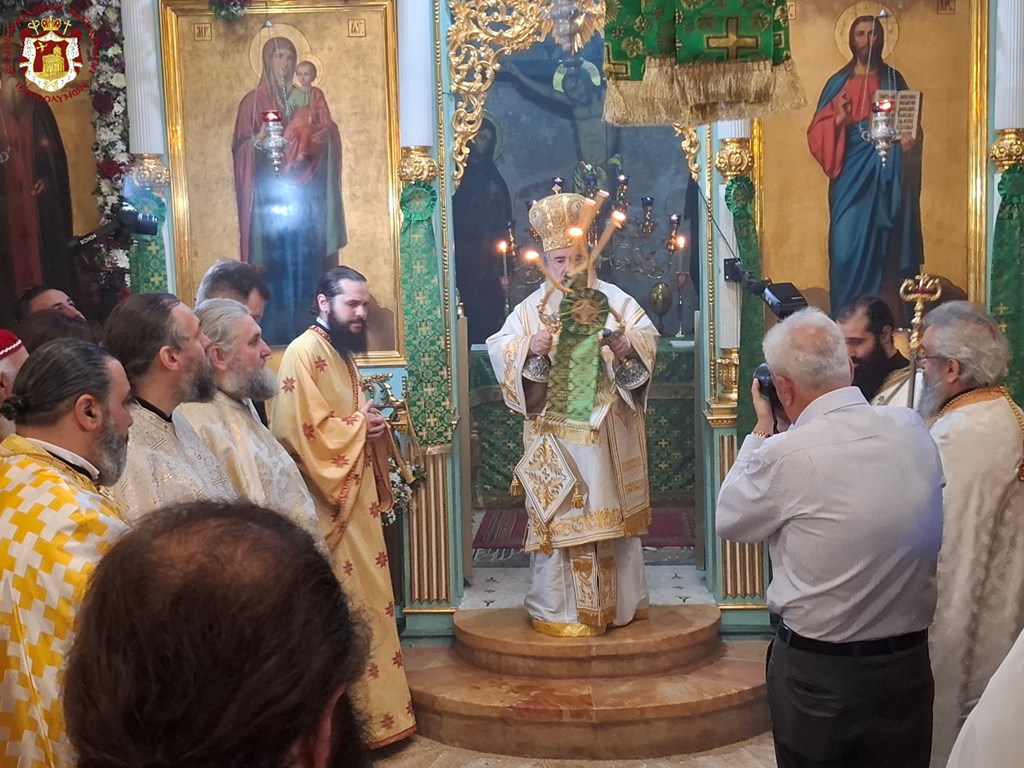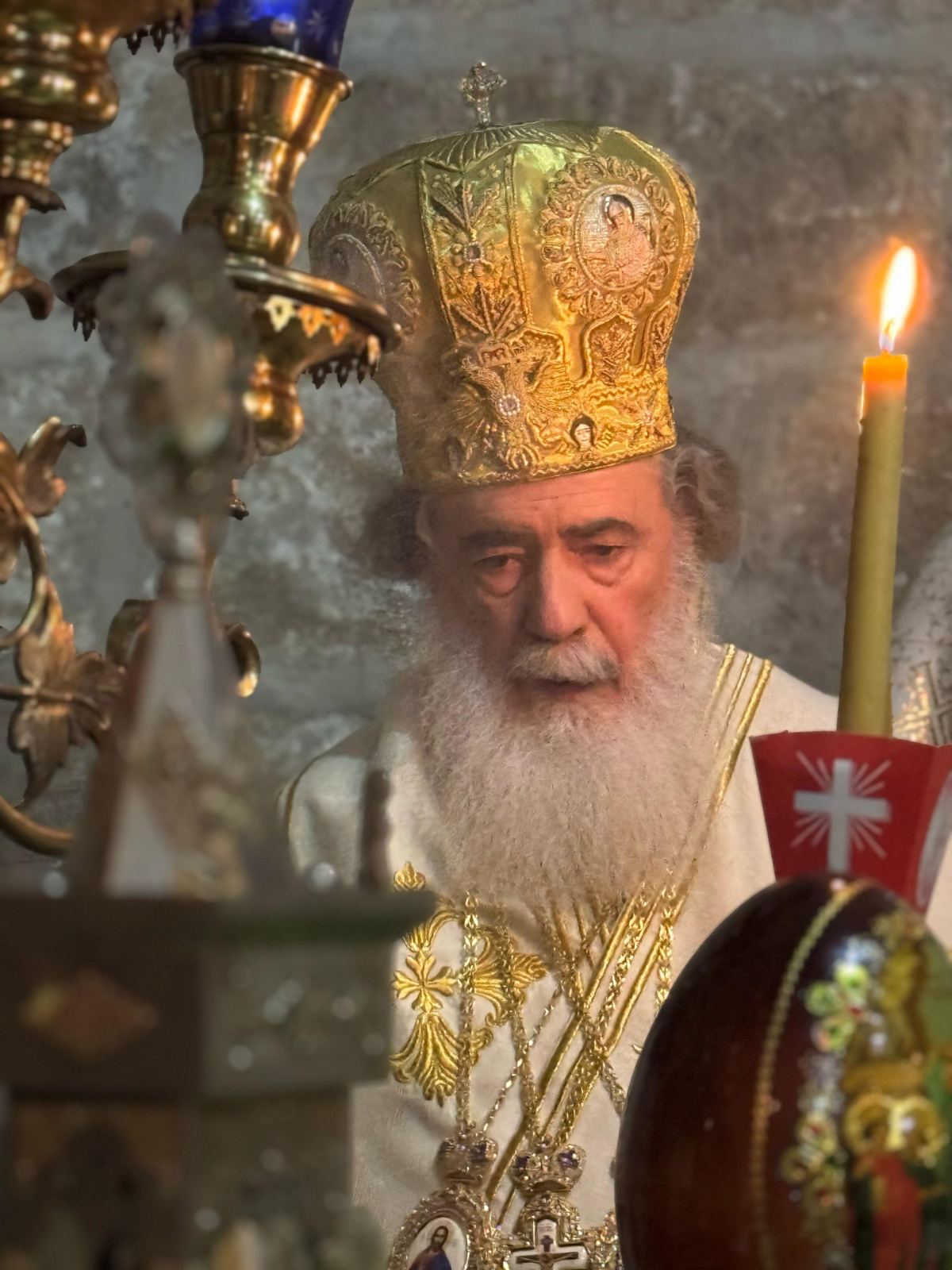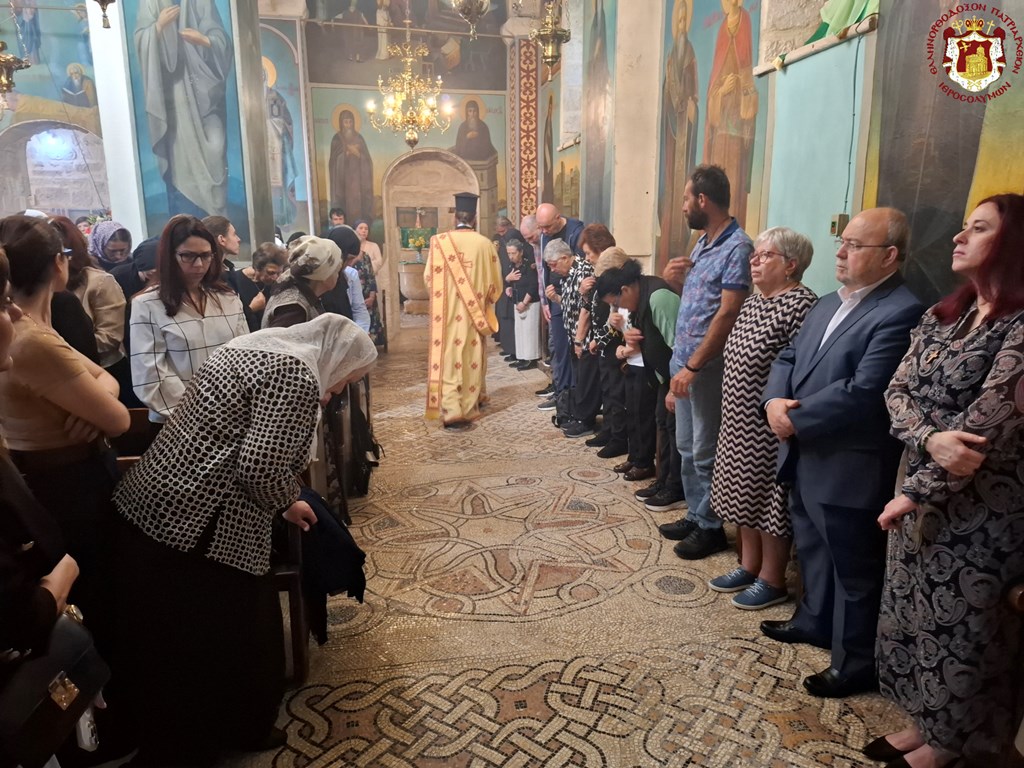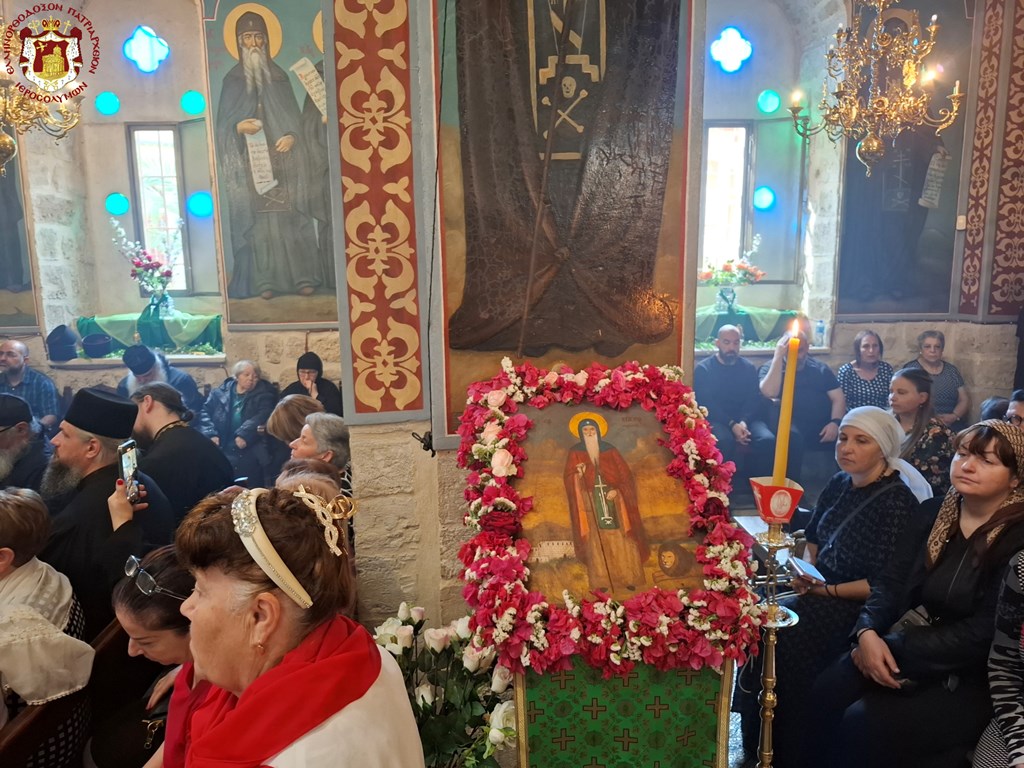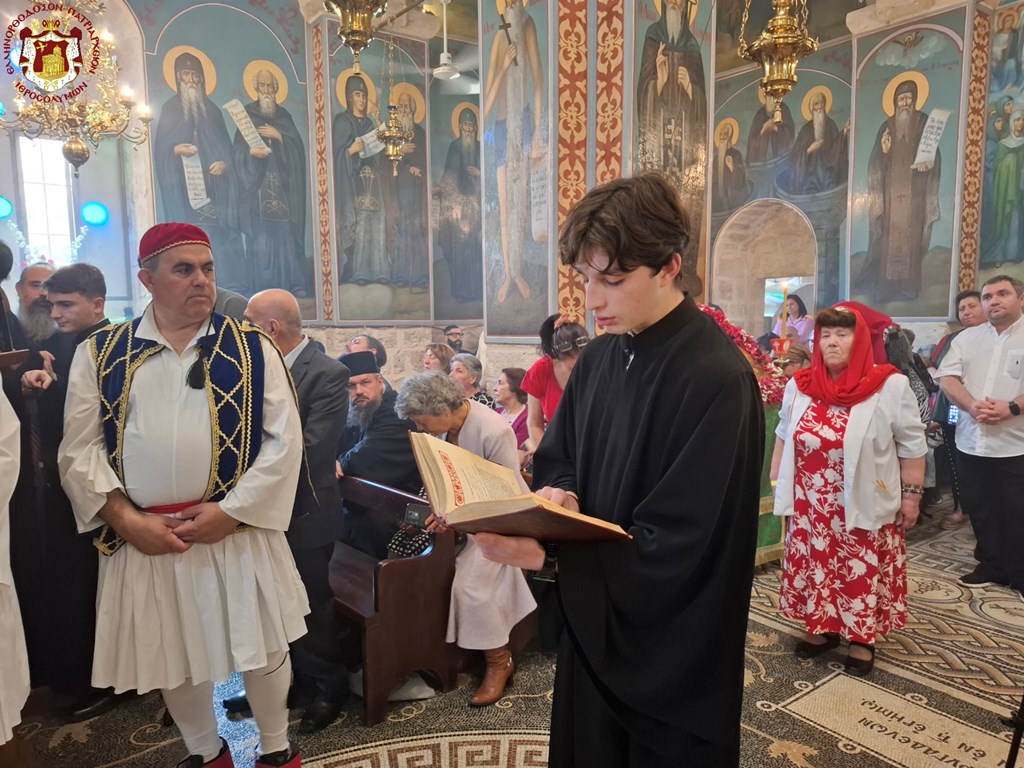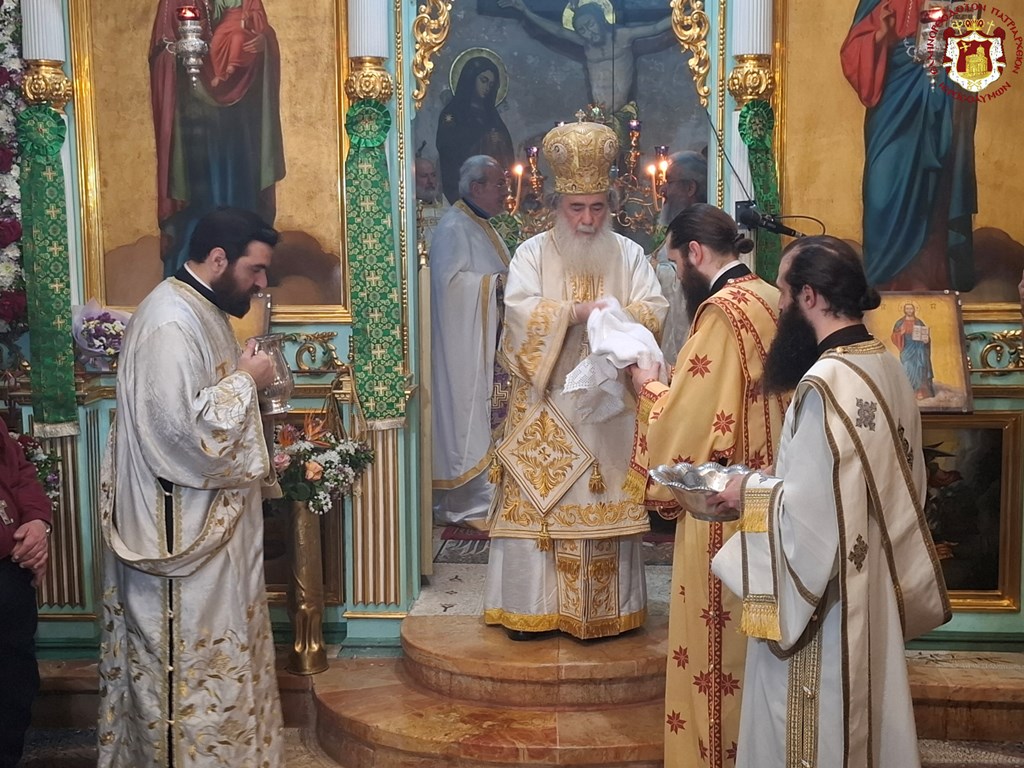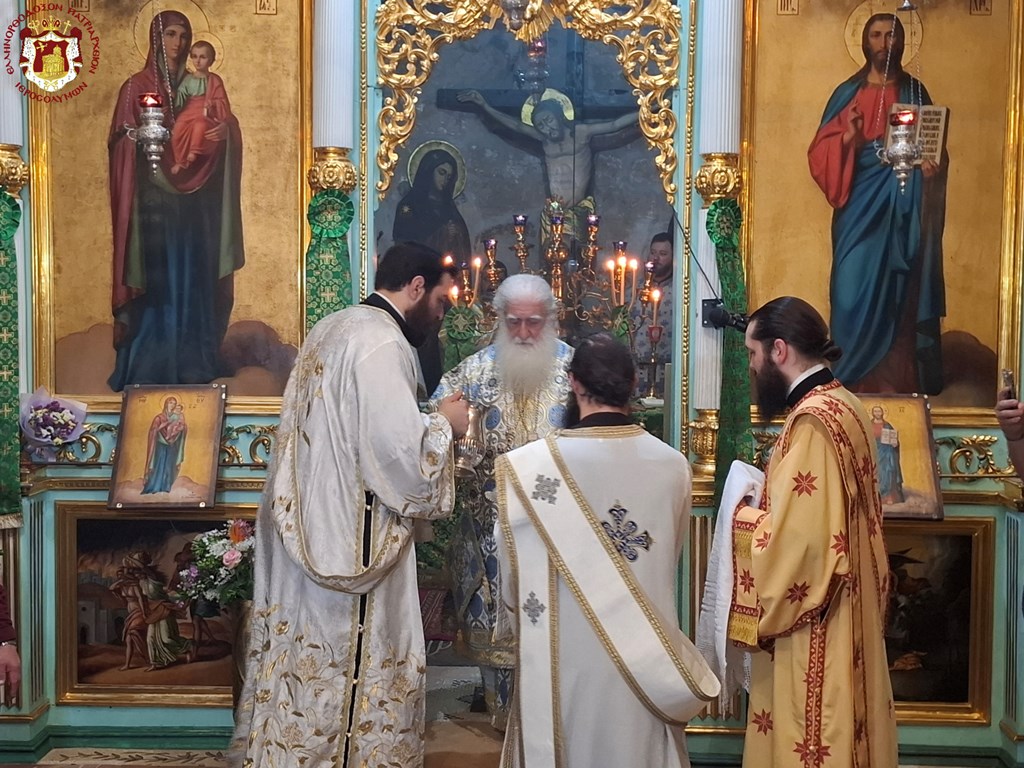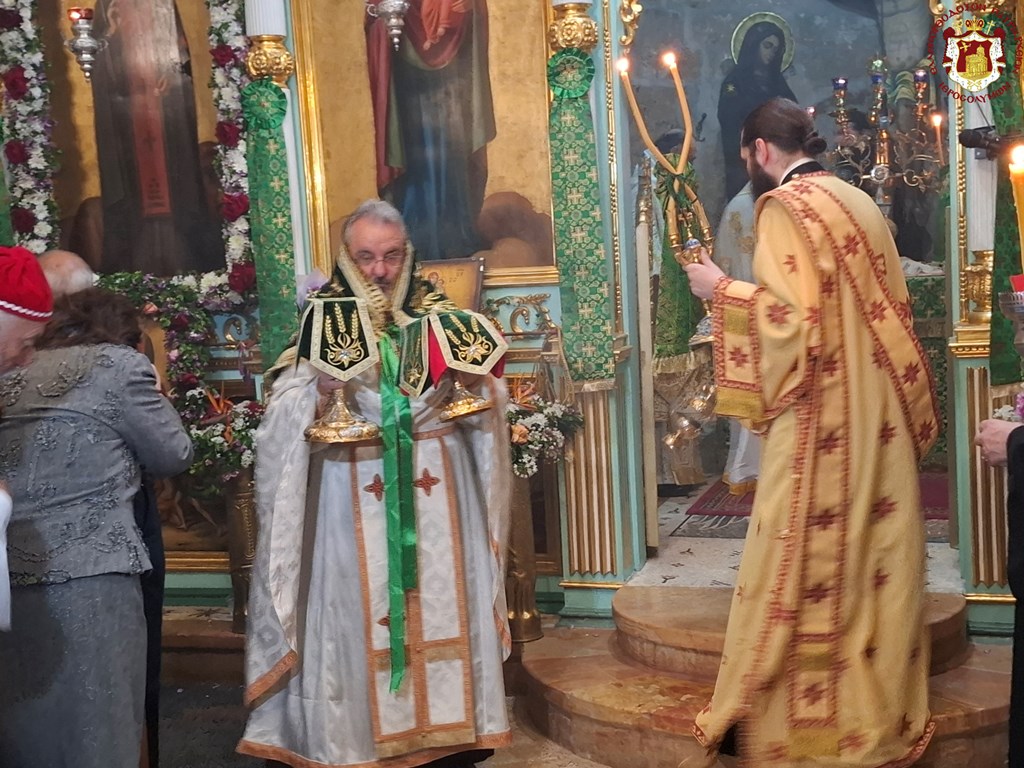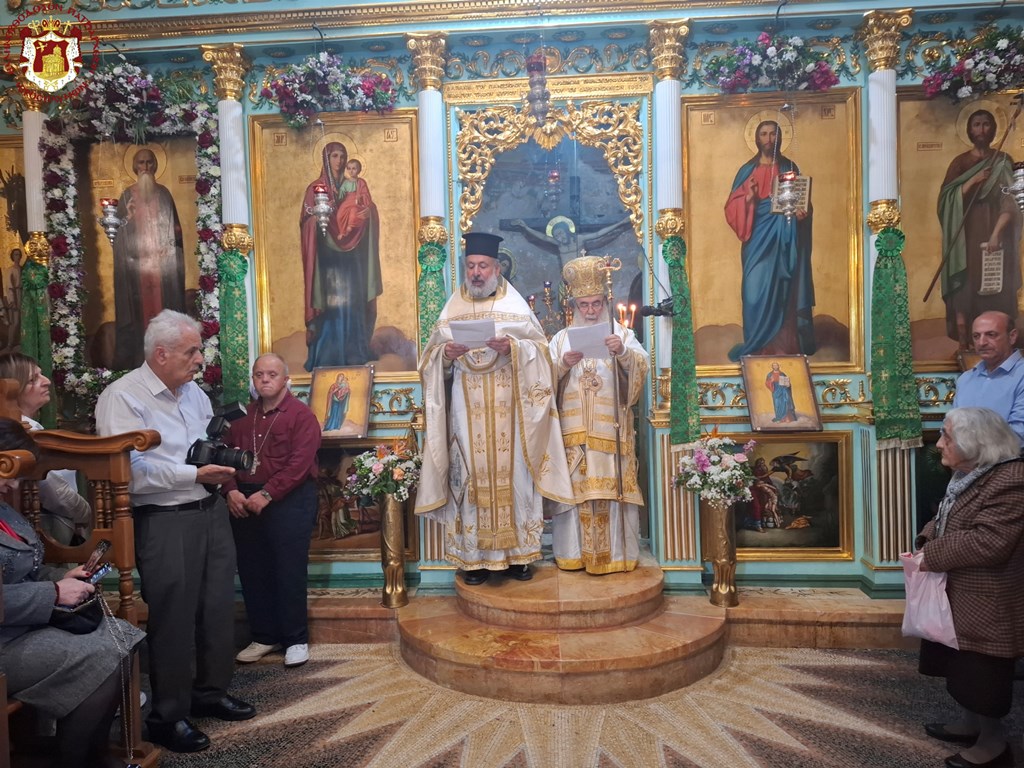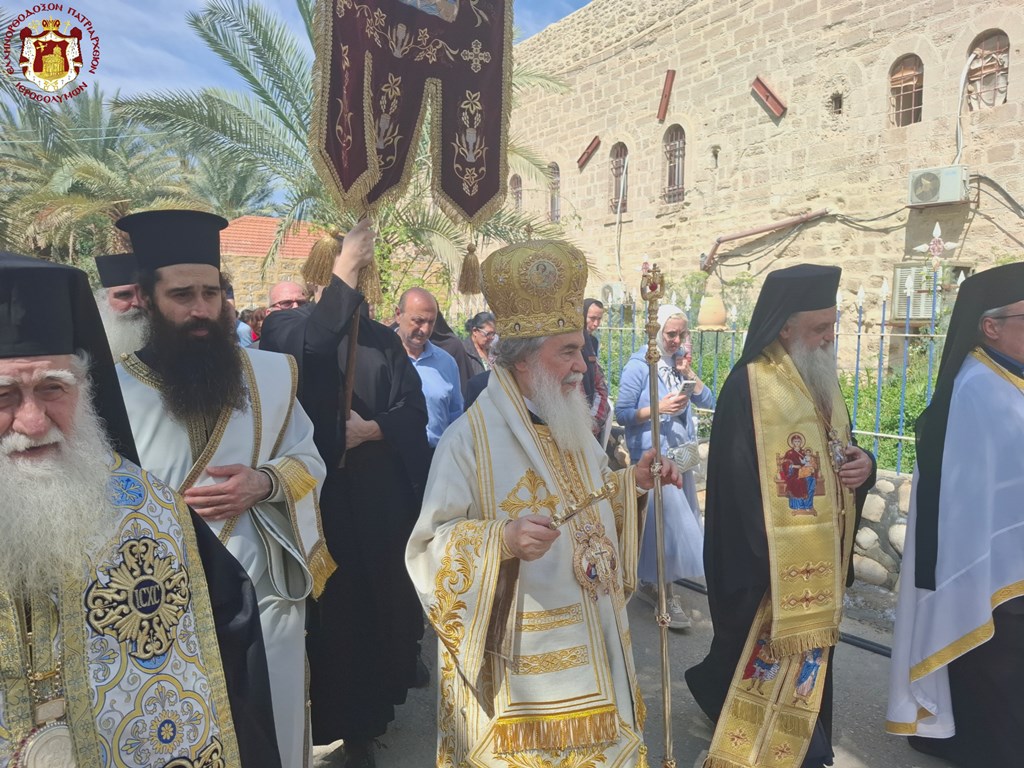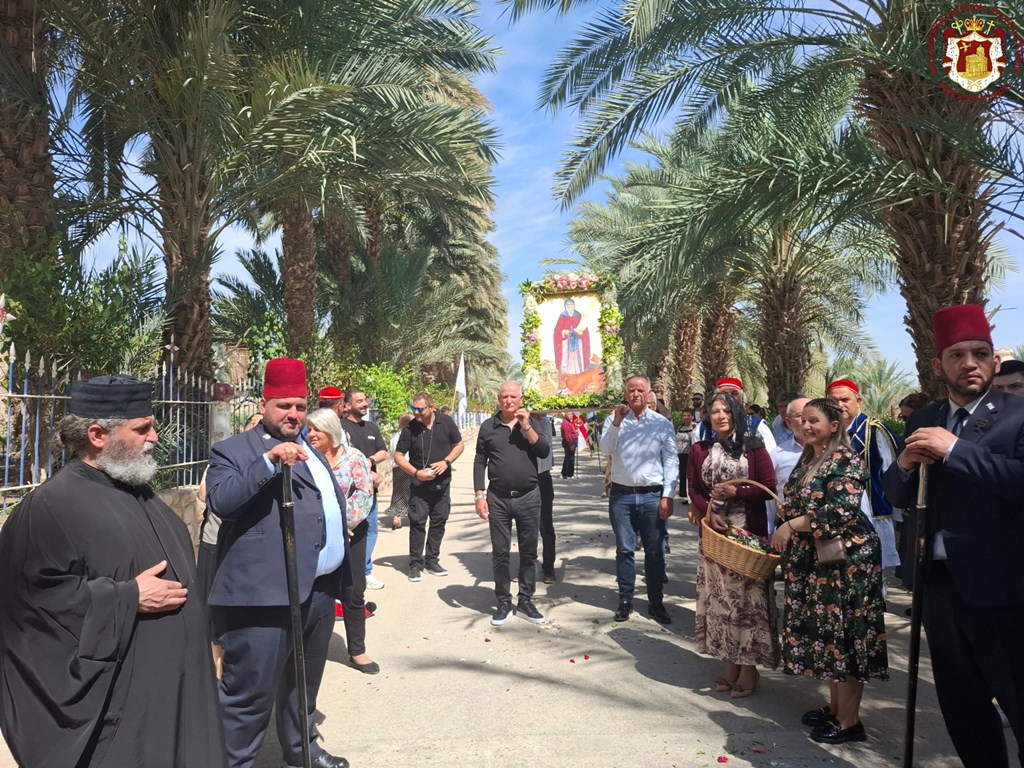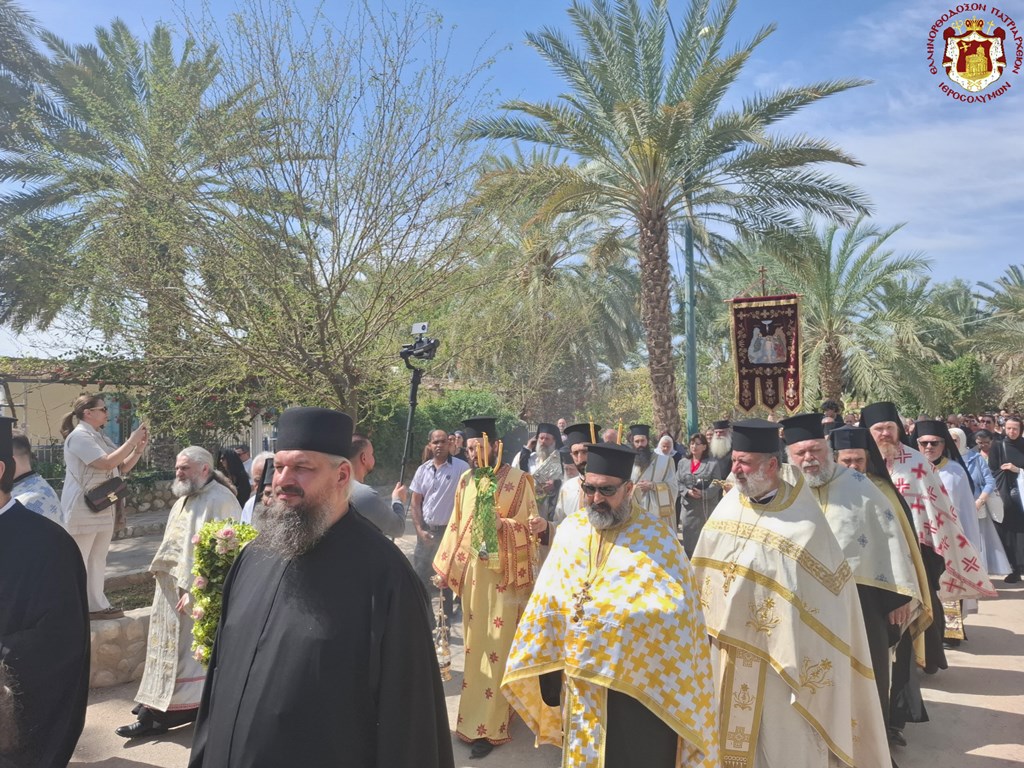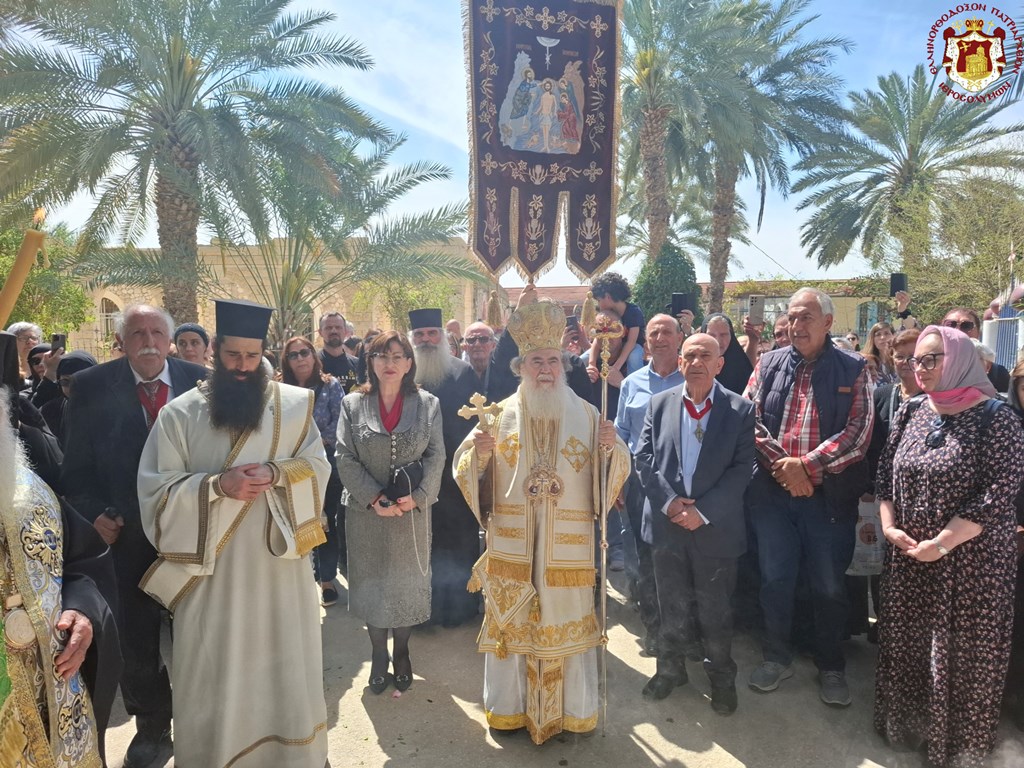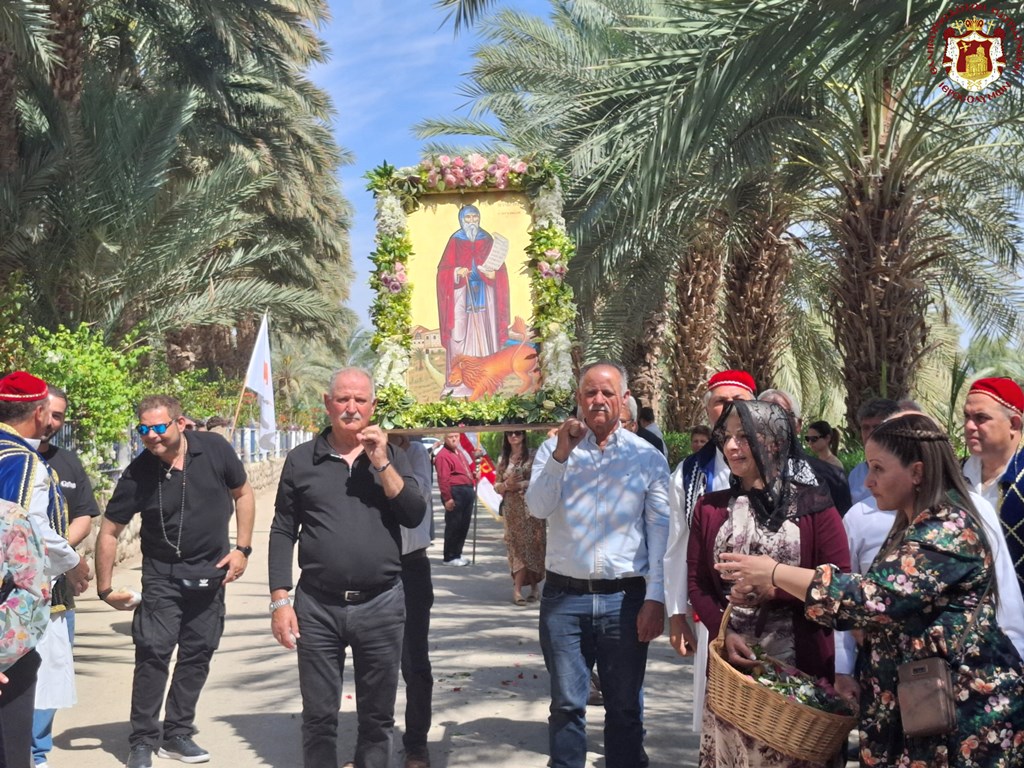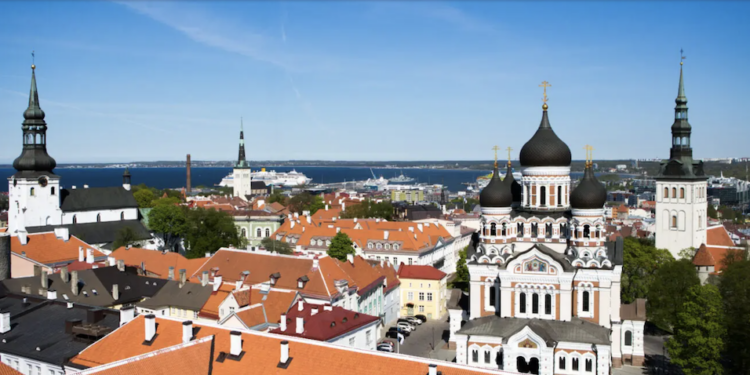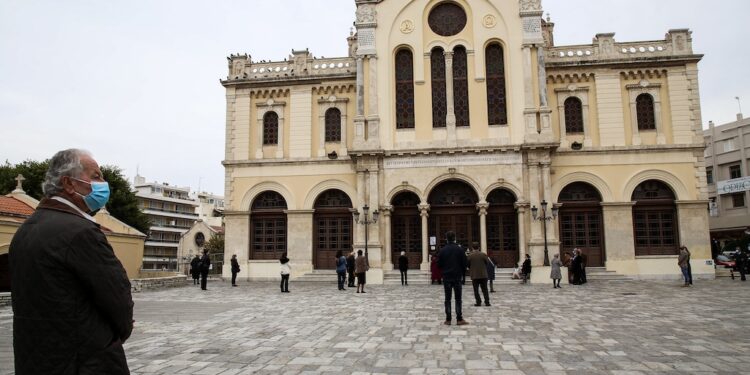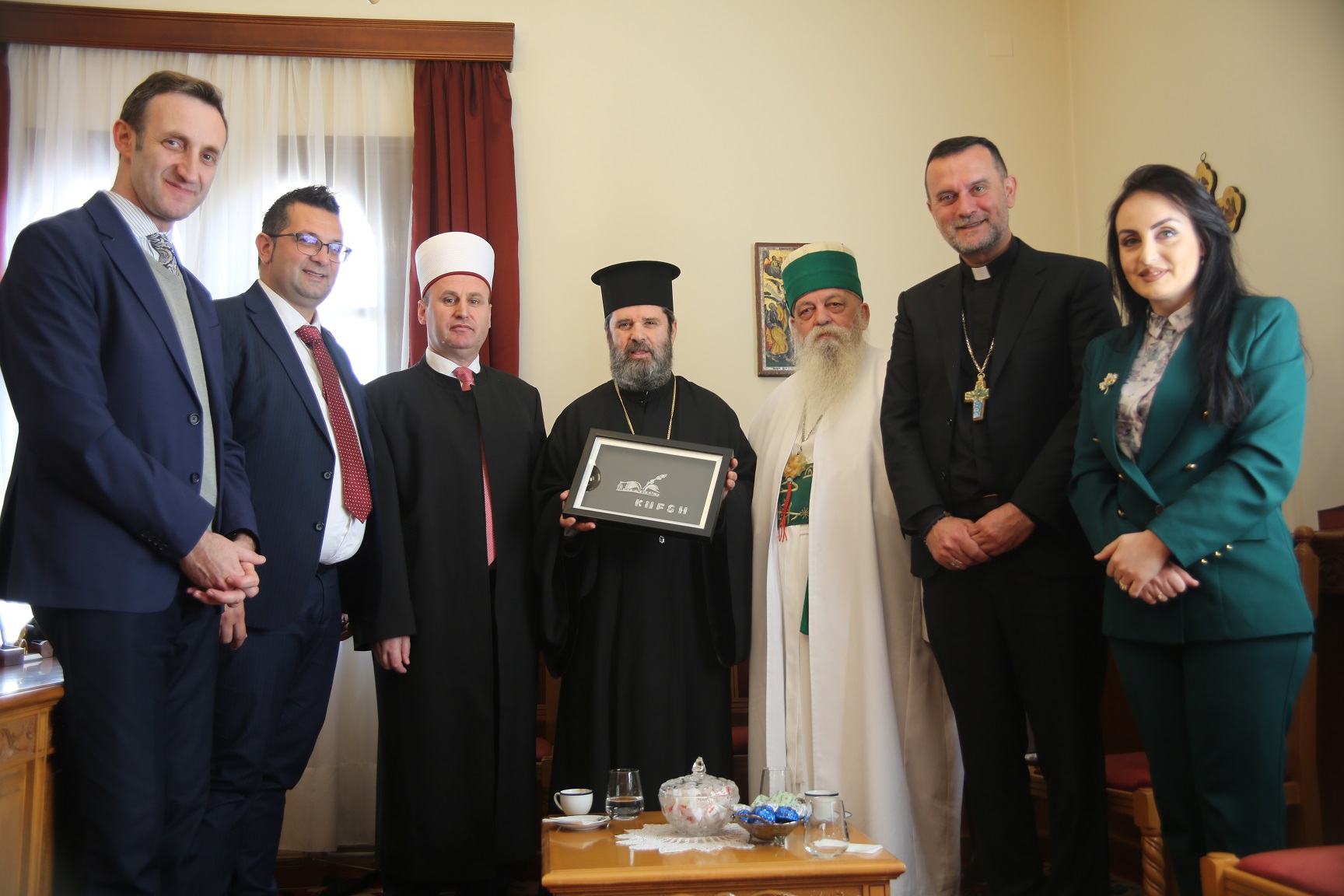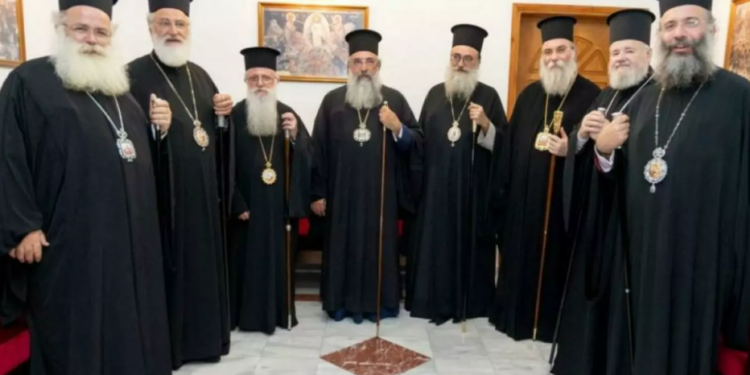The Holy Feast Day of Abba Gerasimus of the Jordan
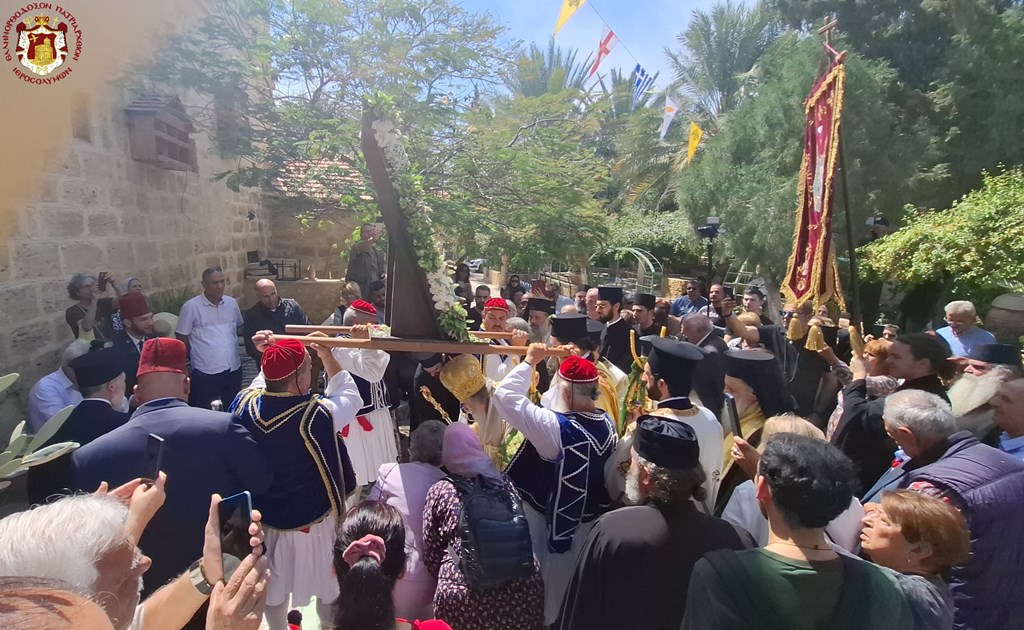
On Monday, March 4th/17th, 2025, the Patriarchate celebrated the memory of Saint Gerasimus of the Jordan at the sacred Monastery dedicated to his name, located in the valley of the Jordan, on its western bank near Jericho.
Saint Gerasimus, having come to the Holy Land from his homeland of Lycia in Asia Minor around the middle of the 5th century, lived in various monasteries in Palestine until he established the Lavra of Kalames in the wilderness of the Jordan. There, he guided thousands of monks in the Orthodox faith as defined by the Fourth Ecumenical Council of Chalcedon, which professes the two natures in the one Person of Christ.
At the solemn feast of the Monastery of Abba Gerasimus, His Eminence Archbishop Demetrios of Lydda presided over the Vespers service in the evening, and on the feast day itself, the Divine Liturgy of the Presanctified Gifts was celebrated by His Beatitude, our Father, and Patriarch of Jerusalem, Theophilos III. He was joined in the service by their Eminences, the Archbishops; Methodios of Tabor and Dimitrios of Lyda, the Holy Sepulchre priests, led by the Exarch of the Holy Tomb in Moscow, Archimandrite Stephanos, and followed by Archimandrites Claudius, Amphilochios, Christodoulos, and Kyriakos, as well as Arab-speaking and Russian-speaking priests, among whom was Fr Issa Mousleh. The Hierodeacons, Simeon, Eulogios, and Dositheos were also present, with the chanting led by the First Cantor of the Church of the Holy Sepulchre, Deacon Eustathios, and the students of the Patriarchal School of Zion. Many local and pilgrim worshippers, hailing from various regions, attended the services, along with the representative of the Greek General Consulate in Jerusalem, Mr. Athanasios Abu Aeta.
To this devout congregation, His Beatitude preached the holy sermon as follows:
“Rejoice, O divine offspring of Lycia, Rejoice, O illustrious dweller of the Jordan, Rejoice, O divine ornament of Palestine, Rejoice, O most perfect imitator of the Holy Forerunner, Rejoice, Father Gerasimus,” thus sings the hymnographer of the Church.
Beloved in Christ,
Pious Christians and pilgrims,
The grace of the Holy Spirit has gathered us all here today in the renowned Holy Monastery of our venerable and God-bearing Father Gerasimus by the Jordan River to joyfully commemorate his sacred memory amid the Lenten season, before the Pascha.
“Let all those that seek thee rejoice and be glad in thee: and let such as love thy salvation say continually, Let God be magnified.” (Psalm 69:5), says the psalmist. Our Father Gerasimus, from his early youth, was greatly moved by the fear of the Lord and, with fervour, sought the monastic and ascetic life. For this reason, he retreated to the inner wilderness of Thebaid during the reign of the Roman Emperor of the Orthodox, Marcian. Around the year 451 AD, he visited the Holy Land, traveled through the great monasteries of Palestine, where he met the desert fathers, including the holy Sabas, the hermit Kyriakos, and especially the pride of the desert, the great Euthymius.
Let us listen to Father Cyril of Scythopolis, who writes in his book Lives of the Saints: “At that time, there was a great hermit from Lycia named Gerasimus. He had completed his monastic life in his homeland, showing many struggles against the spirits of wickedness. Having recently come from his homeland, he began living the ascetic life in the wilderness by the Jordan River. Upon hearing about the wondrous grace of the great Euthymius, he went to him at the place of Rouba, and after staying with him for a considerable time, he was persuaded to accept the doctrine of the Fourth Ecumenical Council of Chalcedon.”
The Lavra founded by Saint Gerasimus in the wilderness of the Jordan became a spiritual gymnasium for many of his disciples and co-ascetics. As Father Cyril of Scythopolis notes, it was like a radiant light, shining and sowing the seeds of piety in the Jordanian desert.
These seeds of piety sown by the blessed Gerasimus in the desert are nothing other than “to serve Him in holiness and righteousness before Him all the days of our life” (Luke 1:75), as the Evangelist Luke says.
The Son and Word of God the Father, our Lord Jesus Christ, is the model and standard of piety, as the divine Paul preaches: “Yea, and all that will live godly in Christ Jesus shall suffer persecution. But evil men and seducers shall wax worse and worse, deceiving, and being deceived” (2 Timothy 3:12-13).
Explaining these Pauline words, the Ecumenical Father says: “This is the godly life in Christ Jesus. The Apostle Paul speaks here of the persecutions from the idolaters, but also of the tribulations and temptations.” And the Holy Chrysostom adds: “For there is no man walking the path of virtue who is without sorrow, tribulation, pain, and temptation.”
The God-bearing Gerasimus manifested himself as an athlete of godliness in Christ, both by his deeds and his words, hearing the command of the divine Paul: “But exercise thyself unto godliness: for bodily exercise profiteth little: but godliness is profitable unto all things, having promise of the life that now is, and of that which is to come”(1 Timothy 4:7-8, KJV).
The fruits of this promise and vow were enjoyed by our holy Father Gerasimus, both in his earthly life and in his heavenly one, as his hymnographer clearly states: “Having ascended the ladder of divine virtues, you reached the height of spiritual contemplation, and you revealed the pure manifestations of the divine mysteries of Christ. Therefore, O God-bearer, we honour and praise you piously: Glory to the One who strengthened you in Christ, glory to the One who crowned you, glory to the One who works through you all healings.” And, “As the morning star shining, Gerasimus, you illumined those in the darkness of life, guiding people to the light of holy living, leading angels without bodies.”
The Holy Church of Christ honours and venerates the Saints, that is, the friends of Christ, such as the God-bearer Gerasimus, because these holy ones guide us, the faithful, to the light of the way of life of the incorporeal Angels, that is, to faith and to the knowledge of the truth, which leads to godliness, as the wise Paul himself confesses: “Paul, a servant of God, and an apostle of Jesus Christ, according to the faith of God’s elect, and the acknowledging of the truth which is after godliness”(Titus 1:1, KJV). The light of the life of the angels is their glory, which consists in the fact that they are “all ministering spirits, sent forth to minister for them who shall be heirs of salvation?”(Hebrews 1:14, KJV), according to Saint Paul.
“Behold now is the accepted time; behold, now is the day of salvation” (2 Corinthians 6:2), a day of immaculate and holy fasting for the purification and sanctification of our souls and bodies, as the hymnographer proclaims: “Through Your compassion, O Christ God, You have provided an example in the time of temperance, O Saviour, by which Thou purify both souls and bodies and sanctify Thine servants.”
Yes, my beloved brothers, the fruit of self-control, namely fasting, has been shown to us by the Lord Himself, Jesus Christ, “fasting forty days and forty nights” (Matthew 4:2). Through this kind of fasting and temperance, He became a partaker of the heavenly life of the holy angels. And today, we honour our holy Father Gerasimus, who, following the example of the preacher of repentance, John the Baptist, in the desert by the Jordan, lived the same ascetic life.
“Moses and Aaron… called upon the Lord, and He heard them, speaking to them in the cloud” (Psalm 98:6-7), says the psalmist. These divine testimonies and commandments—the commandments of God—we are called to keep, with the help and strength of the intercessions of our God-bearing Father Gerasimus, and the intercessions of the most blessed Lady, the Theotokos and Ever-Virgin Mary, so that we may be worthy to pass through the contest of holy fasting and celebrate the glorious Resurrection of our God and Saviour. Amen. Many happy returns and peaceful days!
After the Divine Liturgy, a procession followed around the Holy Monastery. Afterward, a festive and joyful fasting banquet was prepared by the generous hospitality of Archimandrite Chrysostomos, the renovator and Hegumen of the Monastery, who has also made it an oasis in the desert.
From the Secretariat-General
Source: Patriarchate of Jerusalem
